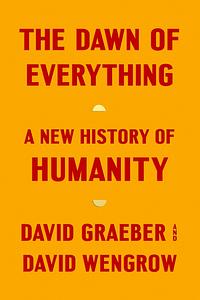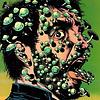Take a photo of a barcode or cover
challenging
informative
reflective
medium-paced
What an incredibly interesting and thought-provoking book! It is a bit of an arduous read, but well worth the effort. It took me several months to finish this (having read several other, lighter, books in between), but I now have a long list of subjects and authors to explore.
informative
slow-paced
challenging
funny
informative
fast-paced
challenging
informative
reflective
slow-paced
A really interesting book that puts into question the nature of civilization, what that really is, and to what degree we're too far set on our current path to be past the point of no return.
Author pleads neutrality, but very openly pleads the case of non-western societies over their western counterparts, which is 100% valid considering how much a key problem is anyway that these alternative societies have been alienating due to an argument of being considered backwards or savage.
Book does a very good job of not necessarily getting caught up on the question of what could have been, but rather, using a lense of how things could have played out differently to plead the case for how we can still do things different today.
Very good book. Liked a lot. 4/5
Author pleads neutrality, but very openly pleads the case of non-western societies over their western counterparts, which is 100% valid considering how much a key problem is anyway that these alternative societies have been alienating due to an argument of being considered backwards or savage.
Book does a very good job of not necessarily getting caught up on the question of what could have been, but rather, using a lense of how things could have played out differently to plead the case for how we can still do things different today.
Very good book. Liked a lot. 4/5
informative
slow-paced
was pretty hard to connect with this one. i listened to the audiobook, which i can usually follow pretty easily during my drives/walks/quiet times at work, but this book needed a lot more engagement from me that i wasn't encouraged to give it. some part of the book were interesting, but for the most part, it was just "we actually have no way of knowing this, so let us guess at what it could be." i appreciate theory and thinking out of the box, but it never gripped me. too vague and muddled for me. am i stupid
Graeber and Wengrow present a refreshingly optimistic view of the anthropological evolution of humans and society. They set out to answer the question, was today’s neoliberal formation of society unavoidable? Furthermore, are other formations of society possible?
Graeber and Wengrow propose that not only are alternative formations of governance possible; humans have been experimenting with these organizations for thousands of years. They offer an evolution of humanity filled with intention and experimentation, a far cry from mainstream thought and teaching that we bumped around in the dark until we landed here. On their quest to disprove the inevitability of our current predicament Graeber and Wengrow dismantle the exceedingly Eurocentric offerings of linear societal evolution (contingent on European style farming and urbanization) suggested by Rousseau and Locke; they suggest an immensely more positive view and outlook for the future.
The writing itself is very digestible and easy to parse. Wengrow and Graeber write clearly and concisely. I appreciate how often they restate the points they make chapter to chapter and stay away from jargon and overly academic language. It seems as though they made a point to keep the work easy to follow while still offering an engaging read.
Overall, I took a lot away from this. I think what impacted me more so than Graeber and Wengrow’s thesis was their attempt to break away from Eurocentric prescriptions of prehistory. This sits along side Orientalism by Edward Said as foundational books that changed way I critically engage with text.
Graeber and Wengrow propose that not only are alternative formations of governance possible; humans have been experimenting with these organizations for thousands of years. They offer an evolution of humanity filled with intention and experimentation, a far cry from mainstream thought and teaching that we bumped around in the dark until we landed here. On their quest to disprove the inevitability of our current predicament Graeber and Wengrow dismantle the exceedingly Eurocentric offerings of linear societal evolution (contingent on European style farming and urbanization) suggested by Rousseau and Locke; they suggest an immensely more positive view and outlook for the future.
The writing itself is very digestible and easy to parse. Wengrow and Graeber write clearly and concisely. I appreciate how often they restate the points they make chapter to chapter and stay away from jargon and overly academic language. It seems as though they made a point to keep the work easy to follow while still offering an engaging read.
Overall, I took a lot away from this. I think what impacted me more so than Graeber and Wengrow’s thesis was their attempt to break away from Eurocentric prescriptions of prehistory. This sits along side Orientalism by Edward Said as foundational books that changed way I critically engage with text.
informative
inspiring
reflective
slow-paced
challenging
informative
slow-paced
the 2 davids’ worldview is fascinating and this book is full of radical ideas, which don’t seem that radical if you stop to think about them. of course human history is full of complex societal structures, and the world hasn’t devolved in a straight line. i found the narrative to be compelling and even optimistic, with recurring figures like kandiaronk as our new heroes. the central thesis was explored with nuance and an occasional dose of snark directed at their contemporaries. great read!






